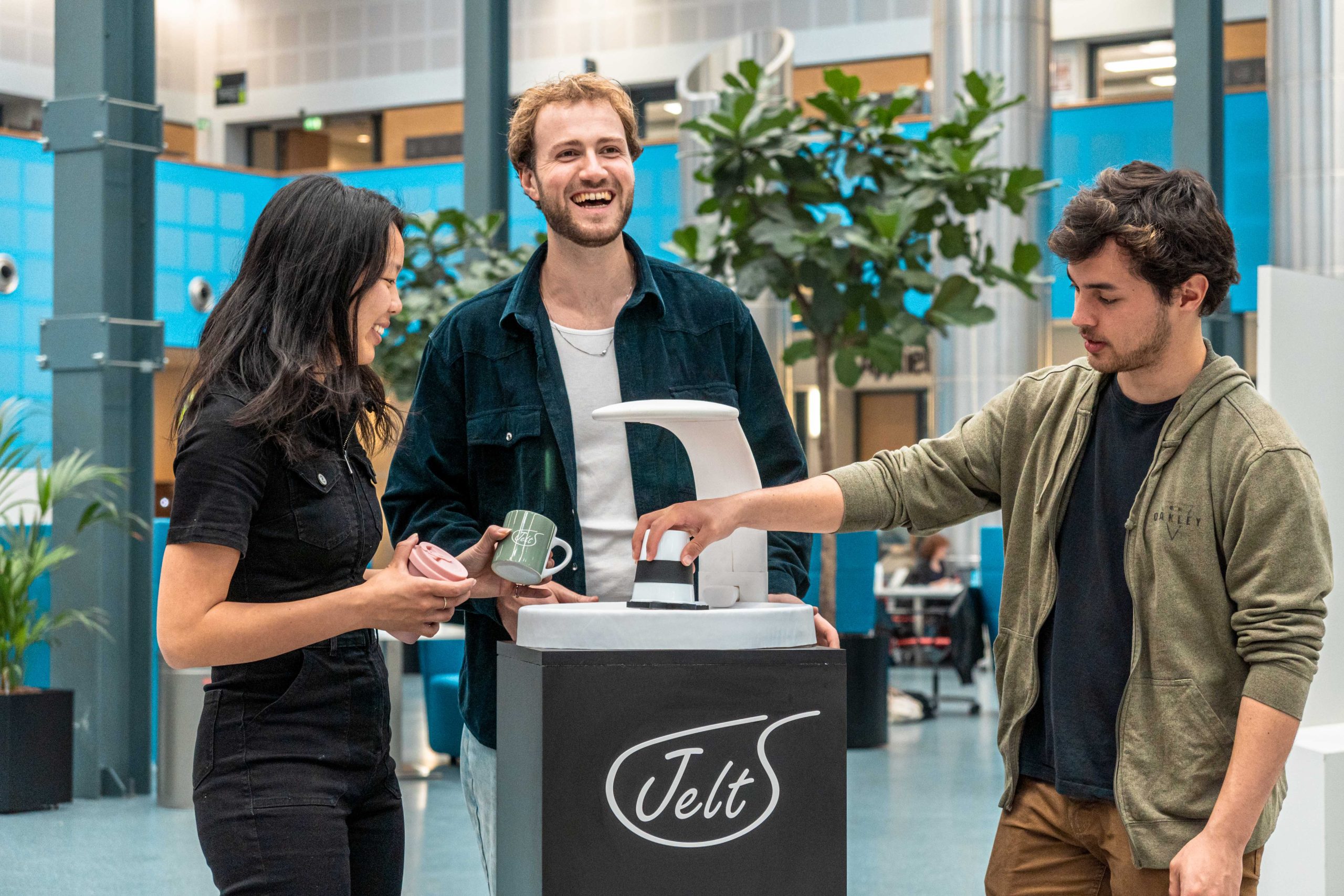Disposable cups have been banned in the hospitality sector since 1 January. TU Delft students behind the Jelt start-up spotted an opportunity and designed a rinsing and drying station for reusable cups. Started Monday 22 April, TU Delft is their testing ground.
The students behind start-up Jelt designed a washing and drying station for mugs and cups. (Photo: Thijs van Reeuwijk)
Coffee mugs, tea glasses and thermos cups are hipper than ever. TU Delft had already introduced the ban on disposable cups last year and introduced the Billie Cup (EUR 1 deposit) to replace them.
Since then, people have had to get used to this. Nobody wants drops of coffee in their bags. And what about switching from coffee to tea later in the day? Without rinsing the cup, the taste of caked cold coffee pervades.
No, reusable cups are not convenient outside the home, saw the students behind the Jelt start-up. The solution was obvious for the Industrial Design Engineering (IDE) master students – a mobile rinsing and drying station for the mugs. They came up with the idea of Jelt in the Build Your Startup IDE master’s subject and then further worked it out.
New problems
Rinsing mugs could be done for a long time, for example in the toilets. And you can exchange a used Billie Cup for a new one in the restaurants and cafés on campus. But these brought new challenges, explains co-founder Eline Oei. “Not everyone thinks it is ok to wash drinking cups next to toilets. And the employees in the restaurants were burdened with extra work.”
Jelt will allow everyone on campus to rinse and dry their mugs. The station is very easy to use, continues Eline. “You just press the mug down on the X to rinse it, and after that you can blow dry it.” In other words, drink, rinse, dry and back in the bag.
This seemingly simple solution involved a lot of thinking. “We thought about other options, like dishwashers. And about using soap. But in the end, this is what emerged. It is fast and uses little water. It is not intended for a massive clean, but just for a small rinse in between.” To do this though, the station needs to be connected to electricity and water so it cannot be placed just anywhere.


With Jelt’s station students and employees can wash their mugs themselves. (Foto: Thijs van Reeuwijk)
Pilot
After a testing phase (“we sat in the corridor at IDE and asked people if we could wash their cups”), Jelt contacted several organisations to ask if they could place their stations there. TU Delft was very interested, a Facilities Team spokesperson said in an email. ‘It is practical, easy to install, and meets a need.’
From Monday, there will be rinsing and drying stations in the Aula, the Library, and at two locations at Architecture and the Built Environment where students and staff can quickly wash their cups. These are strategic spots with a lot of traffic that have water and electricity connections close to coffee machines. The pilot will run at least up to 3 May.
- Read more on Jelt Design’s website (in Dutch)



Comments are closed.